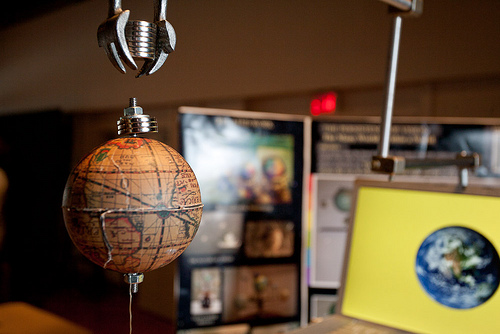When Worlds Come Together

By: Chiara Tondi Resta
Many undergraduate students concerned with their future careers choose to take a traditional “track,” such as pre-medicine, pre-law or pre-pharmacy. Although each of these disciplines is independent and has its own expectations for students, it is easy to get caught up in the tiny “bubble” of each track, and forget that in the real world, all of these professions overlap and often work together, even if they seemingly have nothing to do with each other. But in today’s world, this separation is becoming smaller each day, and it is important to not only realize this, but to embrace it with full force.
For starters, students often tend to ignore their “opposing” classification of fields. For example, many science and math students avoid the humanities, and vice versa. And while this may not necessarily be true for medical schools, law schools are shooting this practice down, and rather aggressively hunting for pre-med and science students to pursue law.
Why? Because the field of law is growing rapidly, and in this technology-ridden world, more and more lawyers are needed to straighten out things like patents, contracts between technological and medical companies and of course, to help write up paperwork for the new healthcare law. While good lawyers are well trained in what they need to do for these “clients,” they rarely have the scientific background that they need to truly understand how their work will affect these groups. As a result, many law programs are simply turning away humanities applicants for these positions and only accepting those with a bachelor’s degree in science or engineering. The problem is that most science students are not aware of this pursuit and most have never even considered going into law. Hopefully with time and patience, the word will spread more quickly, and people with STEM backgrounds will be able to do important legal work for clients who need it.
By the same token, doctors, pharmacists and others in these fields are often naïve in their understanding of how the law affects their work and the health of their patients. More often than not, this leads to costly malpractice suits that can potentially ruin a career, or even result in the physician losing his or her license. The new healthcare law has changed everything that deals with insurance companies and policies, and often times lawyers are necessary to work out problems and clarify the responsibilities of physicians, patients, and insurance companies.
For pharmacists and drug companies, the law has always been an essential part of the way they work. The process of developing new drugs has always been complicated, tedious and governed by federal laws that protect patients involved in clinical trials and approve drugs for sale to the public. Without knowledgeable lawyers to clarify these rules and give the green light to each involved party, the entire process would be a disaster.
Despite the fact that the law world and the science world have been involved with each other for a long time, their relationship is becoming stronger and more important every day. If everyone, especially students, is aware of this, then perhaps the situation can improve for both parties alike.

